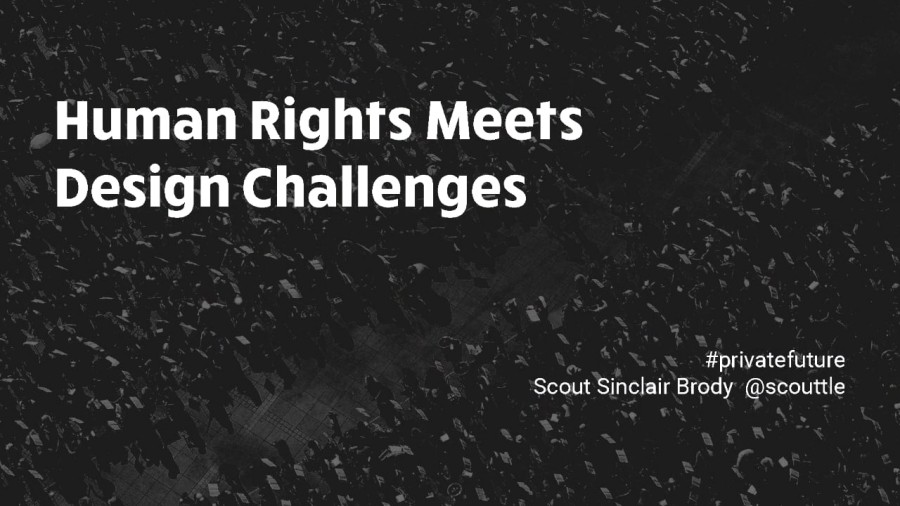Hello, Brooklyn.
Thank you all for coming. It’s really wonderful to be here and to be on a stage with such an illustrious group of practitioners and conceptors of wonderful things.
We’re here to discuss a number of profound concepts. Art, design, futurism, privacy…most of which as a humble technologist I feel entirely underqualified to even start to talk about, so I’m glad that I’m backed up by such a great crew of people here.
While it is daunting to think about these big concepts, it is also essential because you know, technology is not just computers. But today that’s what we usually mean when we say technology. And computers have gone from being these sort of specialist tools that were used in gray rooms by people who developed eye problems because they were focusing on them, to things that we carry around with us every day.
Meredith mentioned sociotechnical systems. The sociotechnical systems that we have today are integrated so thoroughly into our lives that it’s really become impossible for most of us to extricate the technology from the society. The way in which we communicate, the way in which we relate to one another as human beings is through these digits, through these ones and zeroes that are flying through the air.
I am privileged, as a technologist, to have an understanding of what those digits mean, how they’re constructed. But that is not something that everyone has access to, and it is something, however, that you need right now in order to make sense of the way in which your data is used, the way in which your data is accessed, and it’s something that we as humans have on some level a right to know. You have your data, it belongs to you. It doesn’t belong to the person who is managing it. It doesn’t belong to the person who made your phone. It doesn’t belong to the people who own the cell towers that are moving the data around.
So how do we take this right that you have to your data and put it back in your hands, and give you control over it? And how do we do this not just from a technological perspective (and not just from the perspective of a policymaker who lives in Washington DC or whatever capital in whatever country you happen to be in) but how do we do it from a human perspective?
And that’s what we’re here to talk about tonight. How do we take it out of the policy and out of those ones and zeroes, and how do we put it into the emotional? Into the evocatively conceptual. Into the creative.
So, we’re going to tackle this bundle of humanity from frankly a dizzying number of perspectives. We’ve got a lot of people here who are going to talk to you about it with a lot different voices. But something that I want you to remember is that the conversation that we’re about to have is only beginning here on the stage. We’ve got lots of time after for you, the community that actually showed up for an event like this, to continue that conversation with us, with each other, to do it this evening, to do it tomorrow, to do it next week, to do it in the Twittersphere, because this is something that we as a society need to be addressing, and something that I’m really thrilled to have you here to be talking about with us tonight.
Thank you very much.
